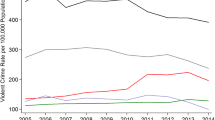Abstract
Sex selection and disability avoidance receive opposed treatment in bioethics literature, legislative practice and public opinion. However, some theorists question this state of affairs by drawing analogies between the harmful consequences of these practices. This paper shares their disapproval of gender selection and disability avoidance, but bases its resistance to these practices on an examination of the concepts of gender and disability. Here it identifies conceptual confusions as another cause of approval of sex selection and disability avoidance. Further, in clarifying the nature of the concepts at issue, and their relationship with the subjects that they apply to, this discussion highlights the existence of relevant analogies between the concepts of gender and disability. Here the social construction and universality of gender and disability allow their differential treatment to be resisted at the conceptual level, creating a strong foundation for more consequentialist arguments against sex selection and disability avoidance.
Similar content being viewed by others
Author information
Authors and Affiliations
Rights and permissions
About this article
Cite this article
Anstey, K.W. Sex selection and disability avoidance: is their opposed treatment conceptually consistent?. Monash Bioethics Review 21, 10–28 (2002). https://doi.org/10.1007/BF03351264
Published:
Issue Date:
DOI: https://doi.org/10.1007/BF03351264




